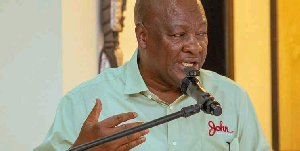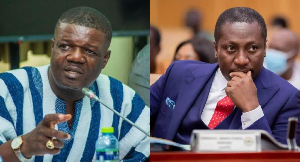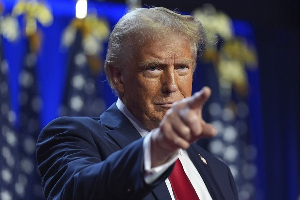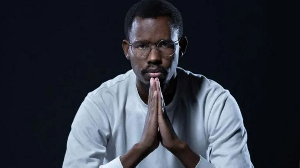


Mercy360 Blog of Saturday, 21 December 2024
Source: Mercy Mensah
ORAL Committee Shows Mahama's Lack of Trust in State Institutions.: Vincent Ekow Assafuah

Vincent Ekow Assafuah, the Member of Parliament for Old Tafo, has expressed his concerns about Operation Recover All Loot (ORAL), a committee established by President-elect John Mahama. Assafuah believes that the creation of ORAL indicates that Mahama does not trust the existing state institutions to handle corruption cases.
Assafuah described ORAL as an unconstitutional body with no legal basis. He argued that the committee's lack of investigative and prosecutorial powers renders it ineffective in addressing corruption. Instead, Assafuah suggested that Mahama should have relied on established institutions such as the Economic and Organized Crime Office (EOCO), the Office of the Special Prosecutor (OSP), and the Commission on Human Rights and Administrative Justice (CHRAJ).
Mary Addah, the Executive Director of the Ghana Integrity Initiative (GII), also shared her thoughts on ORAL. She characterized the committee as a populist idea designed to appease the public. Addah emphasized that while the GII supports the fight against corruption, it is essential to utilize the existing institutions to achieve this goal.
Addah pointed out that similar committees have been established in the past, but they have not yielded significant results. She suggested that Mahama should have directed the public to submit their concerns to the OSP or CHRAJ instead of creating a new committee.
President-elect John Mahama has clarified that ORAL is not intended to investigate individuals but rather to gather evidence and forward it to the relevant state institutions. Mahama emphasized that the committee is a focal point for receiving information on corruption scandals and assembling evidence for future action.
Despite Mahama's clarification, Assafuah and Addah remain skeptical about the effectiveness of ORAL. They argue that the committee's existence undermines the authority of established state institutions and may create confusion among the public.
The debate surrounding ORAL highlights the complexities of addressing corruption in Ghana. While there is a clear desire to tackle corruption, there are differing opinions on the best approach. As Mahama prepares to take office, it remains to be seen how ORAL will function and whether it will achieve its intended goals.
Ultimately, the success of ORAL will depend on its ability to work effectively with existing state institutions and to gather credible evidence of corruption. If ORAL can achieve these goals, it may prove to be a valuable tool in the fight against corruption in Ghana.


















